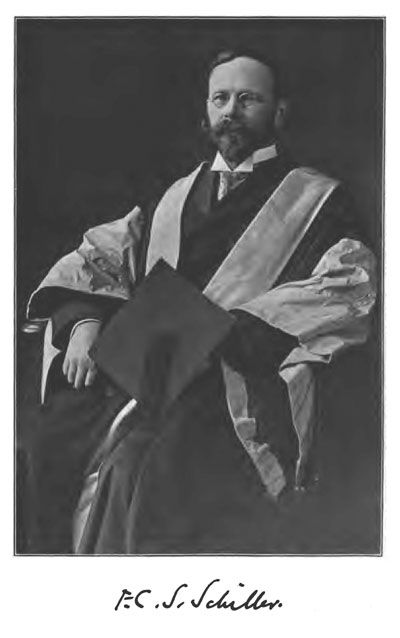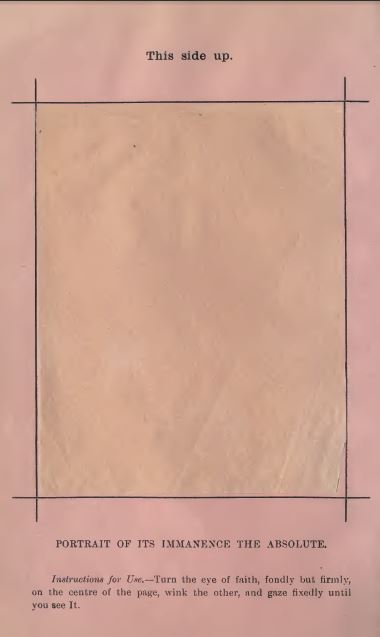THE LOST FRAGMENTS OF HERAKLEITOS IN MIND ! A REVIEW OF ANCIENT AND MODERN PHILOSOPHY
MIND ! A UNIQUE REVIEW OF ANCIENT AND MODERN PHILOSOPHY
EDITED BY A TROGLODYTE
WITH THE COOPERATION OF THE ABSOLUTE AND OTHERS
The philosophical journal Mind was first published in Oxford in 1876 with George Croom Robertson as editor. Back then philosophy in Britain was under the sway of Hegelians like Thomas Hill Green. F H Bradley and J.M.E. McTaggart.
In the twentieth century Mind would be the home of the new analytical school, carrying articles by G.E. Moore (like The Refutation of Idealism in 1903), P F Strawson, Alan Turing and John Searle.
Just as philosophy in Britain was swinging from imperially-minded idealism, to the more pragmatic and cynical scepticism of the Cold War, the journal Mind was challenged by another.
‘A. Troglodyte’ was the pseudonym under which F.C.S. Schiller brought out the journal Mind ! Unlike Socrates, the editor of Mind ! knew he was a cave-dweller like everyone else. The Anglo-German Schiller tried to steer a course between the idealism of his day, and the coming naturalism.

In 1901, the first and only edition of Mind ! mocked the idealists with its invitation to observe the Absolute. Where the Oxford journal Mind looked on higher things, Mind ! was an exclamation to watch out for accidents. Throughout Schiller parodied the airs of his fellow philosophers.
The first edition of Mind ! had a special scoop in Professor Hydati’s discovery of 44 new aphorisms of the Greek philosopher Herakleitos, some of which are reproduced below.
This was the frontispiece for Mind ! with the explanation underneath.

I. - FRONTISPIECE
IT is with the utmost satisfaction that we present to our readers an authentic Portrait of the Absolute, in full panoply, R-rayed in the parinfernalia of Its Office and X-rayed by the new and powerful Shamoscope which we have recently invented and patented and can warrant to see through everything. On (pink1) paper the result looks surprisingly simple, and very like the Bellman's map in the Hunting of the Snark. But in reality it was a difficult achievement. We realised from the first that MIND ! could, as little as anything else, be complete without the Absolute, and determined to use It as an illustration regardless of the expense of the most abstruse and occult processes.
So we advertised for representative Aspects of the Absolute, thinking to compile therefrom a composite photo which should be an absolutely authentic image of the Absolute. They came in shoals, Doctors, Pholisophers of every description, and all Its valiant supporters. But when our modus operandi was explained to them a terrific tumult arose. Each declared that the rest were phenomenal impostors, and that he alone was adequate to represent the Whole. There is no saying what would have happened, but for the presence of MIND ! shown by our Office Boy. He chanced to be entertaining himself with blowing bubbles from a large basin of soap and water. Some he dispersed in pursuit of bubbles, which they hastily identified with the Absolute, others by the direr menace of a scrubbing brush and of the contents of his basin. Shortly afterwards the invention of the Shamoscope offered a welcome means of avoiding all such difficulties and of producing a portrait, which, we trust, will prove equally satisfactory to those who admire the Absolute and to those who do not. All who have seen It assure us that it is an excellent likeness.
1 It is, of course, the pink of Perfection.
Some new aphorisms of Herakleitos
Translated by Professor Hydati
The importance of these new fragments will be readily understood when it is stated that they comprise no less than 44 dicta, while the total number of fragments of Herakleitos previously known was only 130. They were discovered of course in Egypt, by Drs. Grenfell and Hunt, amid the ruins of a Ptolemaic hydropathic establishment in the Fayûm, on a palimpsest papyrus on which the rules of the institution had previously been inscribed. The curious will not fail to remark the irony of Fate whereby a water-cure both extinguished and preserved so much of the philosophy of Fire.
… Their authenticity cannot be disputed: as Prof Burnet well says, “They have unquestionably the true Herakleitian ring”. … At the same time there is an engaging and outspoken modernity about some of the maxims, which seems to indicated that much of the obscuring of the ancients complained of in Herakleitos may in reality have been due to the prophetic character of his thought and his marvellous prescience of modern conditions.
I had rather be right than a king.
I have sought myself – and caught a Tartar!
I asked for Truth, and they gave me History !
I sent my book to the Bodleian, but the Board of Faculty did not read it and granted me a degree !
Asses prefer the sweepings of the lecture rooms to my original researches.
Dullards think deep the darkness they cannot see through.
What I can understand, I despise,' says Sophomoros. Yet he wonders if I write obscurely.
The seriousness of folly needs to be scorched with the inextinguishable laughter of the gods.
Only the witless will try to winnow the wit from the chaff.
Since I gave him beans, Pythagoras has eaten no others.
The filleted soul is the best.
The mob must fight for its law as for its wall: but the weakest go to the wall.
The World is a Demon's play, and all must play a game that none may understand. But the wise play upon words.
Of the gods man's understanding is misunderstanding.
Life is a play, largely upon words.
In waking we are asleep to our dreams to which we wake in sleeping. And yet men will not credit dreams of better worlds.
They send expeditions to all places but to Hades, which awaits them all and holds far more than they desire to know.
It is better to bury the body than the soul, and yet men dread the one and think nothing of the other.
Souls smell in Hades would that bodies did not reek on earth.
Dry souls are best to burn.
The hidden jest is the best
All things flow and nothing endures – except the rot that is poured forth in the Schools.
None can pass the same examination twice, and many not even once.
The war is the father of all things, but its paternity also is a matter of opinion.
One cannot love the same woman twice, nor most even once.
Jesting and earnest are the same ; for out of jesting comes earnest, and earnestness turns into jest.
’Tis the strain of the labouring bow that speedeth the arrow.
Out of seriousness cometh forth mirth and into seriousness turneth again.
Nay, but he who is wise will traverse the two ways together, mirthful in serious work, seriously aiming in mirth.
There is a way to lecture and a way from lecture ; and the way to and the way from are the same: it is a short cut.
The Eagle both feeds on the Vitals of Prometheus and does not feed on his Vitals. For Prometheus does not die.
So also is the World consumed by the Fire and not consumed.
When highborn dames catch Tunnies with a bait of gold, then shall the Flux of Words be stayed, and what I mean be manifest to all.
The new lives in the death of the true, the true in the death of the false, the false in the death of the new. Are not truth, then, and falsehood the same? And is not the new of two things one, either itself false, or what renders all else false?
Wit is the Phoenix who burns himself and is rekindled from the ashes of his father.
The way Up and the way Down is the same, namely the Great Western.
You can read more of Mind ! here https://archive.org/details/minduniquereview00schirich
Mute Books Orders
For Mute Books distribution contact Anagram Books
contact@anagrambooks.com
For online purchases visit anagrambooks.com






